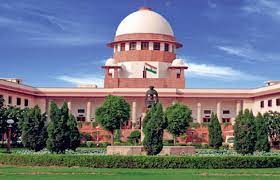
The Supreme Court in the case State Of Kerala And Anr. v Hon’ble Governor For State Of Kerala And Ors + the State Of Tamil Nadu v The Governor Of Tamilnadu And Anr observed and has issued the notice on the plea moved by the Government of Kerala wherein it alleged that the Governor of Kerala, Arif Mohammed Khan, was delaying the consideration of bills that the State Assembly had passed.
The bench comprising of CJI DY Chandrachud, Justice JB Pardiwala, and Justice Manoj Misra in the case observed and seek for the assistance of Attorney General R Venkatramani and Solicitor General Tushar Mehta in the matter. The court in the case observed and has issued the notice to the Chief Secretary to the Governor and the Union of India.
The counsel, Senior Advocate KK Venugopal appearing for the State Government of Kerala made three submissions before the Apex Court–
1. The governor is a part of the legislature under Article 168 of the Constitution of India. As per the Article 168, of the Indian Constitution for every State, there shall be a Legislature which shall consist of the Governor and two Houses to be known respectively as the Legislative Council and the Legislative Assembly;
2. The governor had promulgated three ordinances which were later converted into bills which is passed by Legislature;
3. As many as the eight bills had been pending consideration for the assent of the Governor from 7 to 21 months.
In the present case, the bench was considering the plea moved by the State of Tamil Nadu, in which the Court expressed concerns at the Governor’s delay in disposing of bills which have been pending since January 2020.
The court stated in an earlier hearing the similar plea moved by the State of Punjab that the trend of Governors acting on the bills only after the State Government approached the Court must stop.
Facts of the Case:
The Government of Kerala approached the Supreme Court wherein it is stated that the Governor of Kerala, Arif Mohammed Khan, was delaying the consideration of bills that the State Assembly has passed. It has been contended before the court by the State Government that the Governor had failed in his constitutional duties by causing unreasonable delay in considering over 8 pending bills.
The petitioner moved by the State Government stated that the conduct of the Governor, as would presently be demonstrated, threatens to defeat and subvert the very fundamentals and basic foundations of our Constitution, which includes the rule of law and democratic good governance, apart from defeating the rights of the people of the State to the welfare measures sought to be implemented through the
Therefore, the following are the bills pending consideration of the Governor and the time elapsed since its presentation:
The University Laws Amendment Bill (1st Amendment) 2021 -23 months
The University Laws Amendment Bill (1st Amendment) 2021-23 months
The University Laws Amendment Bill (2nd Amendment) 2021 [APJ Abdulkalam Technical University (Mal)] -23 months
The Kerala Co-operative Societies Amendment Bill 2022 [MILMA] -14 months
The University Laws Amendment Bill 2022 -12 months
The Kerala Lokayukta Amendment Bill 2022-12 months
The University Laws Amendment Bill 2022 -9 months
The Public Health Bill 2021 -5 months
The writ plea has been moved by the State seeking a declaration from the Apex Court that the Governor is bound to dispose of every bill presented to him within a reasonable time and without any delay.
The writ plea moved also seeks a specific declaration that the Governor has failed in the exercise of his constitutional powers and duties by delaying the consideration of the pending bills on time.















